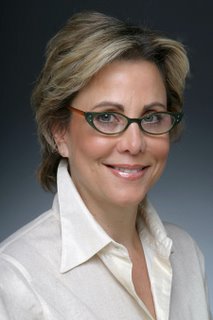Madelyn Wils, CEO of Tribeca Film Institute, on the Inspiration for the Program
 I wanted to start a cultural exchange with a country in the Muslim world, and I talked to Peter Scarlet because he has ties through film in those parts of the world. We needed a place where there was already an infrastructure in order to realistically get funding, and Morocco came to mind. Peter told me about his trip and introduced me to Faical Laraichi and Hakim Belabbes.
I wanted to start a cultural exchange with a country in the Muslim world, and I talked to Peter Scarlet because he has ties through film in those parts of the world. We needed a place where there was already an infrastructure in order to realistically get funding, and Morocco came to mind. Peter told me about his trip and introduced me to Faical Laraichi and Hakim Belabbes. Faical is a very passionate man who really believed that this program could happen. With him there was this synergy that made it easy to come to grips with the demands, and through the planning, to keep in the mind’s eye the importance of the cultural exchange.
Muslim-American relationships are very strange. We have a one-sided view and I’m willing to bet that not many people in our country can distinguish the difference between an Iraqi and an Iranian, for instance. And I knew there are probably caricatures in the Muslim world about Americans. It was important to break down barriers and recognize that we have common interests. Filmmaking, because it can be intensely personal, is a great way to go about doing this.
The first thing I noticed when I got there, was that a few days after the classes began I realized I could no longer tell the difference between the Moroccan and the American students. They were all mixing and I felt good that we had chosen the right group for this adventure. After we met the Moroccan students while we were in Morocco, we realized the importance of picking the right students here - students who would be open and mindful of other cultures and views with the idea of humanity always in mind.
The other thing was that I thoroughly enjoyed the actual content of the courses that I sat in on. It was fun to watch the film clips in a different way with the guidance of the teachers and it was fun to be in a classroom again. Also, it is important to note that the Moroccan students were learning in an entirely new way compared to what they were used to, just in terms of the methodology of teaching cinema. And when Kiarostami came, the American students (and all the students) had to get used to his way of teaching as well.

0 Comments:
Post a Comment
<< Home